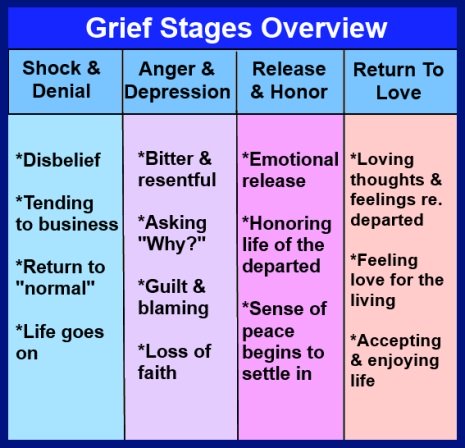This Is The place I Depart You: A Journey By way of Grief, Household, and Sudden Connections
Associated Articles: This Is The place I Depart You: A Journey By way of Grief, Household, and Sudden Connections
Introduction
On this auspicious event, we’re delighted to delve into the intriguing subject associated to This Is The place I Depart You: A Journey By way of Grief, Household, and Sudden Connections. Let’s weave fascinating data and supply recent views to the readers.
Desk of Content material
This Is The place I Depart You: A Journey By way of Grief, Household, and Sudden Connections

Jonathan Safran Foer’s "This Is The place I Depart You" is not your typical household drama. Whereas it actually delves into the messy, sophisticated, and sometimes hilarious dynamics of a dysfunctional household, it transcends the style by exploring profound themes of grief, loss, and the surprising paths to therapeutic and connection. The novel, structured round a week-long shiva following the demise of the household patriarch, Judd Altman, turns into a poignant microcosm of the Altman household’s fractured previous and unsure future. It is a story about second possibilities, confronting the ghosts of the previous, and discovering that generally, the individuals we least count on can supply essentially the most surprising consolation.
The narrative unfolds primarily by the attitude of Judd Altman Jr., the eldest son, a struggling screenwriter grappling with the current implosion of his marriage and a profession that feels perpetually stalled. His return to his childhood residence, an emblem of each consolation and painful reminiscences, forces him to confront not solely his personal private struggles but additionally the complicated relationships he shares together with his siblings and oldsters. His brothers, Philip, a profitable however emotionally stunted lawyer, and Jason, a perpetually immature and perpetually single musician, characterize completely different aspects of the household’s dysfunction. Their sister, Wendy, a seemingly put-together therapist, struggles together with her personal secrets and techniques and vulnerabilities beneath a refined exterior.
The Altman household, introduced collectively by the shared grief of shedding their father, is something however united. Years of unstated resentments, simmering rivalries, and unresolved conflicts bubble to the floor, making a unstable ambiance charged with rigidity and simmering emotion. Their shared historical past, marked by the infidelity of their father and the next fracturing of the household unit, casts an extended shadow over their current interactions. The shiva itself, a ritual designed to supply solace and help, paradoxically turns into a stage for the household’s emotional drama to unfold, revealing the deep-seated wounds which have festered for years.
Foer masterfully makes use of humor to navigate the often-painful material. The Altman household’s interactions are punctuated by witty dialogue and darkly comedic observations, offering moments of levity that forestall the narrative from changing into overly sentimental or melodramatic. The absurdity of their conditions, their often-childish squabbles, and their makes an attempt to deal with grief in their very own distinctive methods create a darkly humorous tapestry that underpins the novel’s emotional core. This comedic component, nonetheless, by no means diminishes the gravity of the underlying themes. As an alternative, it serves as an important counterpoint, highlighting the resilience of the human spirit within the face of adversity.
Past the speedy household, the novel explores the complexities of different relationships. Judd’s reconnection together with his ex-wife, his burgeoning relationship together with his neighbor, and his interactions together with his siblings’ important others all contribute to a wealthy and nuanced portrayal of human connection. These relationships, typically fraught with their very own challenges, mirror the central household dynamic, highlighting the universality of human imperfection and the potential for development and understanding even in essentially the most difficult circumstances.
The character of Judd himself is especially compelling. He’s a flawed protagonist, grappling together with his personal insecurities and anxieties whereas concurrently trying to navigate the complexities of his household relationships. His journey all through the week-long shiva is one among self-discovery and acceptance. He confronts his previous failures, each private {and professional}, and begins to confront the long-standing resentment he harbors in direction of his father. This technique of self-reflection will not be at all times snug, however it’s important to his eventual therapeutic and development.
The novel additionally gives a poignant exploration of the character of grief and loss. The demise of Judd’s father serves as a catalyst, forcing the household to confront not solely their grief but additionally the unresolved points which have plagued their relationships for years. The shiva itself turns into a symbolic house for mourning, not just for the deceased but additionally for the misplaced potential and shattered desires which have formed their lives. Foer avoids simplistic portrayals of grief, as an alternative presenting a nuanced and multifaceted exploration of the emotional complexities related to loss. The characters’ responses to grief range extensively, reflecting the various methods wherein people deal with trauma and loss.
Moreover, "This Is The place I Depart You" touches upon the complexities of contemporary relationships. The novel explores the challenges of marriage, divorce, and navigating the complexities of romantic entanglements in a world the place conventional buildings are more and more fluid. Judd’s personal marital struggles are central to the narrative, however the experiences of his siblings and different characters additional illuminate the various panorama of contemporary relationships and the difficulties of sustaining intimacy and connection in a fast-paced and sometimes isolating world.
The setting itself performs an important function within the narrative. The Altman household residence, with its nostalgic reminiscences and lingering ghosts of the previous, serves as a strong backdrop for the unfolding drama. The acquainted environment, each comforting and unsettling, contribute to the general ambiance of the novel, creating a way of claustrophobia and depth that mirrors the emotional turmoil of the characters.
In conclusion, "This Is The place I Depart You" is greater than only a household drama. It is a poignant and insightful exploration of grief, loss, and the enduring energy of household bonds. By way of its witty dialogue, compelling characters, and exploration of common themes, the novel resonates deeply with readers, providing a strong and in the end hopeful message about the opportunity of therapeutic, forgiveness, and discovering surprising connections even within the midst of profound loss. It is a story that stays with you lengthy after you’ve got turned the ultimate web page, prompting reflection by yourself household dynamics, your personal previous regrets, and the enduring significance of human connection. The humor serves as an important counterpoint to the heavier themes, making the story each deeply shifting and unexpectedly humorous, a testomony to Foer’s ability in crafting a really memorable and resonant narrative. It is a e-book about leaving the previous behind, but additionally about discovering which means and solace within the messy, sophisticated, and in the end lovely actuality of household.







Closure
Thus, we hope this text has supplied priceless insights into This Is The place I Depart You: A Journey By way of Grief, Household, and Sudden Connections. We thanks for taking the time to learn this text. See you in our subsequent article!
